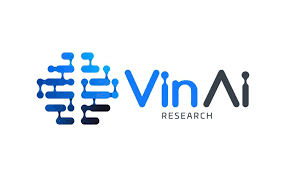Vingroup's Innovation leading growth
01/12/2020
Vingroup's Innovation leading growthVinTech, spun off from VinSmart, is researching artificial intelligence (AI), producing software, and developing new generation materials, primarily through its two research institutes, the Big Data Research Institute (VinBigdata) and the Vin Hi-Tech Research Institute (VHT).The company is putting biotechnology innovation high on its agenda. The field is called “the next trillion-dollar market” by Deep Nishar, senior managing partner of Softbank Vision Fund.
In October, VinBigdata, a research institute under VinTech, partnered with five international prestigious research organizations and six leading universities to develop science and technology in precision medicine. VinBigdata and Vinmec, the healthcare social business of Vingroup, have also been conducting the largest research project on the Vietnamese genome, which is expected to tackle significant problems in cancer and inherited diseases of Vietnamese people.
“If you’re in the top 50% of research and development (R&D) investment in your industry, your probability of moving up the power curve is higher,” noted Hirt.
Vingroup, with its two funds — Vintech Fund and Vingroup Innovation Fund (VinIF), is the first Vietnamese conglomerate to establish funds for basic research, applied research, and commercialization of new technologies after the enaction of Decree 76/2018/NĐ-CP in 2018, certifying once again its leading position in the industry.
The last innovation strategy that could make Vingroup’s vision perfect is startup investment.
According to Forbes’s statistics in 2017, 75 of the Fortune 100 companies are active in corporate venturing, and 41 have a dedicated corporate venture capital (CVC) team.
“More and more companies want to do deals because it has multiple benefits,” said Arthur Shek, partner at McKinsey’s Hongkong office, citing four key reasons, which were to promote innovation to access novel technologies and new market opportunities, to defend against new competitors, to gain financial returns, and to raise intangible values like customer loyalty or talent attraction.
Vingroup established Vingroup Ventures in 2018, but, after two years without a single deal, announced its divestment from the unit this March and has delegated the ownership to its subsidiaries, as part of an internal restructuring exercise to penetrate into the industrial real estate sector, according to DealstreetAsia.
However, VinTech Fund has seen to invest some $3.7 million in 12 applied science projects last year, including several technologies of Vietnamese startups like Vbee, Earable, and Bonbouton.
While the full business vision of Vingroup in this field has yet to be revealed, by performing audacious innovation strategies, the company has successfully attracted overseas Vietnamese talents, such as the world-class Vietnamese mathematician Vu Ha Van, who was a professor at Yale University, and Dr. Hung Hai Bui, who worked for Google DeepMind, Adobe Research and had spent ten years at the AI Center, SRI International (formerly Stanford Research Institute).
VinTech, spun off from VinSmart, is researching artificial intelligence (AI), producing software, and developing new generation materials, primarily through its two research institutes, the Big Data Research Institute (VinBigdata) and the Vin Hi-Tech Research Institute (VHT).

The company is putting biotechnology innovation high on its agenda. The field is called “the next trillion-dollar market” by Deep Nishar, senior managing partner of Softbank Vision Fund.
In October, VinBigdata, a research institute under VinTech, partnered with five international prestigious research organizations and six leading universities to develop science and technology in precision medicine. VinBigdata and Vinmec, the healthcare social business of Vingroup, have also been conducting the largest research project on the Vietnamese genome, which is expected to tackle significant problems in cancer and inherited diseases of Vietnamese people.
“If you’re in the top 50% of research and development (R&D) investment in your industry, your probability of moving up the power curve is higher,” noted Hirt.
Vingroup, with its two funds — Vintech Fund and Vingroup Innovation Fund (VinIF), is the first Vietnamese conglomerate to establish funds for basic research, applied research, and commercialization of new technologies after the enaction of Decree 76/2018/NĐ-CP in 2018, certifying once again its leading position in the industry.
The last innovation strategy that could make Vingroup’s vision perfect is startup investment.
According to Forbes’s statistics in 2017, 75 of the Fortune 100 companies are active in corporate venturing, and 41 have a dedicated corporate venture capital (CVC) team.
“More and more companies want to do deals because it has multiple benefits,” said Arthur Shek, partner at McKinsey’s Hongkong office, citing four key reasons, which were to promote innovation to access novel technologies and new market opportunities, to defend against new competitors, to gain financial returns, and to raise intangible values like customer loyalty or talent attraction.
Vingroup established Vingroup Ventures in 2018, but, after two years without a single deal, announced its divestment from the unit this March and has delegated the ownership to its subsidiaries, as part of an internal restructuring exercise to penetrate into the industrial real estate sector, according to DealstreetAsia.
However, VinTech Fund has seen to invest some $3.7 million in 12 applied science projects last year, including several technologies of Vietnamese startups like Vbee, Earable, and Bonbouton.
While the full business vision of Vingroup in this field has yet to be revealed, by performing audacious innovation strategies, the company has successfully attracted overseas Vietnamese talents, such as the world-class Vietnamese mathematician Vu Ha Van, who was a professor at Yale University, and Dr. Hung Hai Bui, who worked for Google DeepMind, Adobe Research and had spent ten years at the AI Center, SRI International (formerly Stanford Research Institute).